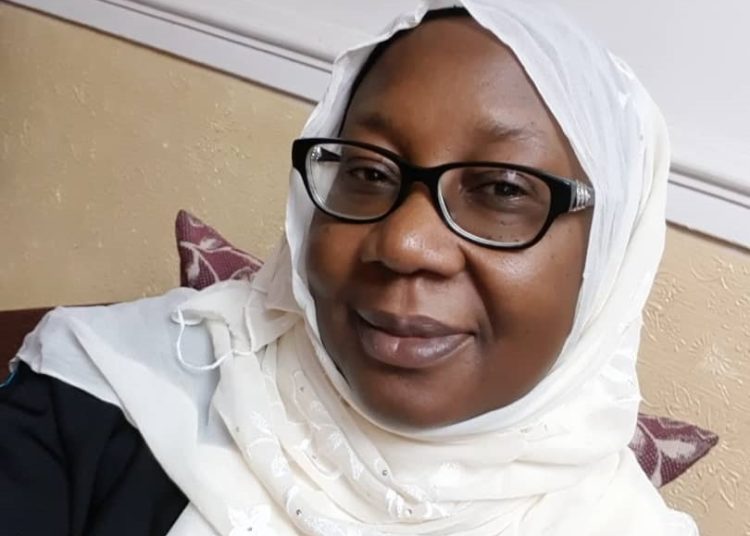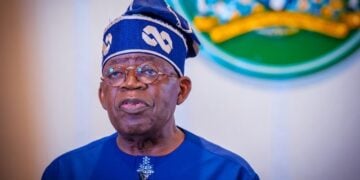Last Thursday, Kaduna State Government launched an e-learning portal which is also known as Nigeria Learning Passport. What is this passport all about and is it a state government or a federal government initiative?
Learning passport is as simple as the name suggests. You know if you want to travel you need a passport. So, the Learning Passport is just like a pathway or gateway for learning. And it’s actually a collaboration with the federal government and UNICEF and of course our state, Kaduna state. Some other states have also benefited from this. Covid-19 has changed the way we were doing things; now we do most things virtually. People work from home, it’s not about where you are but what you do.
Secondly, this will enable school children to learn at their own pace and from the comfort of wherever they are. The Learning Passport will also facilitate the Open School Programme. You know we have an Open School Programme with the federal government too and the Learning Passport is also part of it. The programme is for those that dropped out of school either because of financial or social reasons, so they can still catch up. This way they can access books, they can learn. Learning Passport is not always online learning, it can also be offline too.
So basically, Nigeria Learning Passport is an online e-learning platform with mobile and offline capability. The passport enables continuous access to quality education in a highly flexible and adaptable manner. It allows states to easily and quickly adopt the platform as their learning management systems or use it to complement existing digital learning efforts.
Specifically, the platform has been developed with a unique suite of online and offline functions that cater for deployment in places with poor connectivity, especially locations where children find themselves unable to access quality digital education, tools and content. The platform serves national curriculum content as well as global supplementary resources, including Open Educational Resources (OERs), to support learners and improve learning outcomes.
Nigeria Learning Passport is also an ‘education model’ for early childhood education, primary and secondary education, adolescent skills, and technical and vocational education. Every user has a personalized record of their learning history which is unique to them. It is also a model for teachers and parents to receive the tools and empowerment in order to support student learning.
Under the Nigeria Learning Passport, learners can access self-paced modules for basic and secondary education courses, early literacy and mathematics, social studies, social emotional learning, child development, and social inclusion for early childhood educators.
The online component of the learning passport will require computers and some kind of hand held devices, has Kaduna state given the pupils and students those tools to ease e-learning?
No, we have not given to all pupils and students, but we have provided some of these devices in schools. You know we are doing the computerization of our legacy schools. UNICEF also distributed 7,000 tablets; that is a relatively small number, compared to the number of pupils or students that we have but sometimes these things start at a slow pace before they catch up later. We have a versatile Information Communication Technology unit at Government House, which is manned by professionals. We are working towards improving e-learning in our schools. We have also made provision for more devices and we are going to make additional provision in partnership with some Telecom companies like Airtel, MTN and of course, Microsoft.
There is always the challenge of connectivity and poor service. Will there be any back up for that at least for students and pupils in the rural areas? Will the government provide this service or the Telecom companies?
Yes. Our Chief Information Officer is working on them to increase the reach. We appreciate that there are far-to-reach areas, there are problems of connectivity, so that is being worked on and you know we are rolling out 3G or 4G just to make connectivity seamless as they should be. We should be looking at end of the year to make sure that students who don’t have connectivity or have poor connectivity will notice some improvements.
What is this Better Education Service Delivery For All (BESDA) programme that Kaduna state government is doing, all about?
Better Education Service Delivery for All (BESDA) is an education programme which some selected states are running in conjunction with Universal Basic Education Commission (UBEC). Kaduna state happens to be one of them. You know we have changed our schooling format or school programme to first six years of primary school and three years of basic post primary and junior secondary, then three years of senior secondary. BESDA is actually targeted at primary school or basic education. So, the programme is to ensure that there are sufficient instructional materials like books, smart boards up to the level of even writing materials and bags for our pupils. So, once you have a conducive atmosphere for learning and good service delivery, you expect to see better outcomes. So, this is run by UBEC in conjunction with the state government and we actually flagged-off the distribution of materials for this year last week at Unguwar Sarki Primary School.
BESDA was conceived by the federal government in order to return the over 10.3 million out of school children, according to UNICEF statistics, back to school. The government borrowed $611 million from the World Bank and it is giving 17 states as grants and Kaduna state is one of the states. The states were selected based on out of school children data. The programme started in 2019, and it is going to end some time this year in October. Recently, Kaduna State Universal Basic Education Board (KADSUBEB) disbursed N183,000 to 2,121 schools, to enable them undertake minor repairs, out of the N400 million that the Universal Basic Education Commission (UBEC) has given the state government.
Kaduna state is involved in fencing schools in very vulnerable places, what is the state of the Safe Schools Programme?
We have given contracts, some contractors are on site, some others have abandoned the project, some have completed the work, some are almost completed. But I must call on communities to let us know what is happening in those localities and the Administrators of those schools too should inform us about the projects. Sometimes, the problem is that there is a lot of delay, so in between when they start the work; there are lots of procedures. Then there might be storm damage, theft, sabotage and so many criminal things. It’s like government is pulling in one direction and the other forces are pulling in the other.
We appreciate that we have to do more that is why we are working with the World Bank, also the Islamic Development Bank and other partners to try to see what we can do regarding safeguarding those schools. Like you said, there is also the Safe School Initiative which is being run by the federal government, which we are working on. I commend the Parent Teacher Association of some of the schools, which have worked hard to contribute their quota in safeguarding our schools. We thank some of our partners for their Corporate Social Responsibility (CSR). Even our honourable members of the House of Representatives and senators have been helping in improving the standard of education in Kaduna state.
But I will also call again, government cannot do it alone, it must be a collective responsibility. You know, the community has to be involved and all hands must be on deck; everyone must play his or her part. I remember most of the Grammar Schools in the southern part of the country, it’s communities that built them. They didn’t just fenced them but they actually built the schools and provide the teachers. The south has been doing this for themselves for a very long time now. So, we need to catch up in that respect but I can assure you that government will do all within it’s limited financial capability to address this.
EDUCATION Facts
-Education is still free and compulsory in Kaduna state, from primary to senior secondary school levels;
-Providing free education is in line with the constitution of the Federal Republic of Nigeria, the National Policy of Education and the Kaduna State Policy on Education;
-The government has strengthened free education by providing free textbooks and uniforms to primary school pupils and secondary school students;
– Last year, the administration procured textbooks, handbooks and e-books worth over N800 million for basic and post basic education;
– In 2020, N800 million was spent on uniforms and over N400 million was also spent for sewing of new uniforms last year;
— In June 2021, Her Excellency, the Deputy Governor of Kaduna state, Dr Hadiza Balarabe, flagged off the distribution of free uniforms to students;
-From 2015 to last year, Kaduna State Government has constructed about 927 new classrooms and it is building new schools around the state;
– Seven new schools have been built for gifted and talented students in Danbushiya, Pambegua, Hunkuyi, Buruku, Jere, Manchok and Rigachikun towns;
–Kaduna State Government is building the main campus of Kaduna State University (KASU) along Zaria-Kaduna road, behind National Teachers’ Institute (NTI). So far, over N10 billion has been invested in the project;
-Through KADSUBEB, the state is executing Primary Education Development Projects on the Abuja to Kaduna and Kaduna to Kano roads;
– Last year, it started rehabilitating and fencing them




